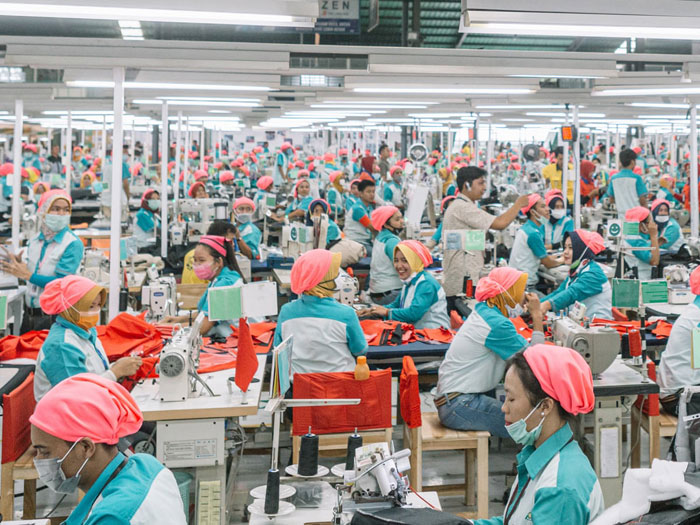New union-employer agreement in Sri Lanka addresses key worker rights issues

27 December 2021, Mumbai:
Today, garment worker unions in Sri Lanka have signed a ground-breaking agreement with employer association Joint Apparel Association Forum (JAAF) in which both parties reached an understanding about how to address vital workplace issues for garment workers, especially during the pandemic.
Clean Clothes Campaign, Labour behind the Label, Maquila Solidarity Network, Solidarity Center, War on Want, Workers United welcome the important progress that this union-employer agreement represents.
Through our research, solidarity statements, public reports and letters to brands and factory owners, we have supported the struggle by Sri Lankan unions and worker groups for better working conditions, effective protection for workers during the pandemic, and an end to anti-union harassment.
This historic agreement lays out and confirms joint support for fundamental steps towards improving working conditions during the Covid-19 pandemic and importantly towards respect for freedom of association in Sri Lanka’s garment industry.
A joint statement of the Sri Lankan signatory unions, Free Trade Zones & General Service Employees Union, National Union of Seafarers Sri Lanka & National Union of Migrant Workers Sri Lanka, and Sri Lanka Nidahas Sewaka Sangamaya said: “This is the first time an industrial sector is represented in a bi-partite agreement with worker representatives.
This is also the first time both employer and employee representatives have agreed on workplace health management through bi-partite health committees.”
Ineke Zeldenrust, International Coordinator at Clean Clothes Campaign, said: “This agreement goes some way towards redressing the power imbalance between workers and employers. It gives joint support for the Bipartite Health Committees, and a Bipartite Dispute Resolution Mechanism, all of which have been key asks of the Sri Lankan trade unions to factory owners during the pandemic.”
Edgar Romney, Secretary-Treasurer of Workers United, said: “This agreement is of great importance and is the outcome of strong organising, campaigning, and negotiating under the difficult circumstances of the pandemic, which has had dire effects for garment workers in Sri Lanka. Significantly it explicitly covers the rights of the many workers in the Free Trade Zones which is long overdue”.
The need to quickly start the work on installing health committees and laying down assurances on the freedom to organise during the pandemic also meant that the more complex topic of wages is not yet included in the document.
Workers in Sri Lanka, as in many other countries, have been systematically underpaid during pandemic. Furthermore, workers do not profit from the growing export rates of the Sri Lankan industry and continue to be paid poverty wages.
This must most urgently be addressed, both with factory owners and with major brands and retailers that source from Sri Lanka, whose power over prices paid for products and whether to pay for or cancel orders or even take up their business to other countries are crucial factors in wage development in a country like Sri Lanka.
We applaud the fact that separately from the signed agreement, unions and employers reached an understanding to continue collaboration to investigate and address the issue of wage loss during the pandemic.
We hope for a timely and transparent solution to make workers whole that also includes brands and retailers taking responsibility to settle the problem of lost wages.
SOURCE: Clean Clothes Campaign (The news article has not been edited by DFU Publications staff)
Dear Reader, we at DFU Publications are committed to providing the latest news updates on trade development and insights, to keep our readers informed. Stay tuned. Subscribe to our newsletter.
DAILY NEWS:

























